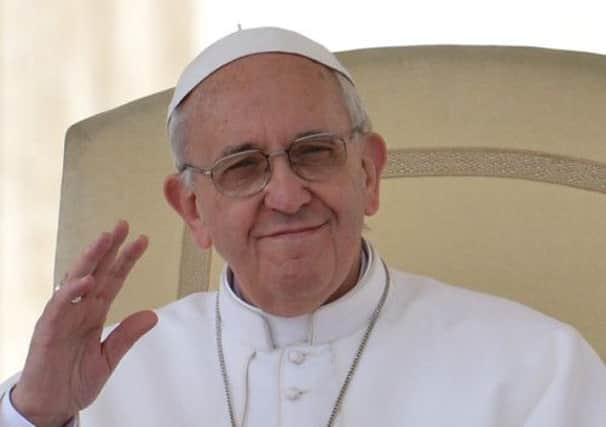Pope Francis names his man at Vatican bank


Francis appointed Monsignor Battista Ricca as interim prelate of the Institute for Religious Works (IOR).
It is a key job that has been vacant since 2011: The prelate oversees the bank’s activities, attends its board meetings and, critically, has access to all its documentation. The prelate reports to the commission of cardinals which runs the bank headed by Cardinal Tarcisio Bertone, Vatican secretary of state and Vatican No 2. That gives Ricca a near-direct line to the pope, serving as a bridge between the bank’s lay managers and board members and its cardinal leadership.
Advertisement
Hide AdAdvertisement
Hide AdRicca is director of the Vatican hotel where Francis lives and other Vatican-owned residential institutes for clergy.
Technically the appointment was made by the bank’s five-member commission of cardinals, headed by Bertone. However, the Vatican statement announcing the appointment made clear Francis had approved it, an indication that it was something the pope either initiated or strongly supported.
The Vatican spokesman, the Reverend Federico Lombardi, said the interim nature of the appointment was a sign that Francis is still mulling how to reform the Vatican bureaucracy as a whole – one of the major priorities set out by the cardinals who elected him pope in March.
Right before resigning, Benedict XVI named German aristocrat and financier Ernst von Freyberg as IOR president, filling a vacancy that had been left open for nine months following the ouster of Italian banker Ettore Gotti Tedeschi for alleged incompetence. Von Freyberg has said the bank’s main problem is its reputation, not operational shortcomings.
The Council of Europe’s Moneyval committee, however, says otherwise. The committee, which helps member countries comply with international norms to fight money laundering and terrorist financing, gave the Vatican bank several poor or failing grades in its inaugural evaluation last year.
While praising the Vatican as a whole for making progress quickly, Moneyval said the bank’s rules for customer due diligence, wire transfers and suspicious transaction reporting were insufficient. It said the bank needed an independent supervisor and must conduct a thorough risk assessment to ensure that it knew its clients and the risks it faces.
Vatican officials have recently revealed that six such transactions were flagged last year and another seven so far in 2013. However, the customer checks are only now getting under way, even though the Vatican pledged to Moneyval that they would be completed by December 2012. Von Freyberg has said they would be completed by the end of July.
The Vatican must submit a progress report to Moneyval in November.
Advertisement
Hide AdAdvertisement
Hide AdThe Vatican opened itself to the Moneyval evaluation process after signing a European Union monetary agreement in 2009. Its aim is to shed the bank’s image as a secretive tax haven and improve its reputation in global financial circles following a series of scandals, including a money-laundering investigation launched by Rome prosecutors in 2010.
Von Freyberg has hired a consultancy in the fight against money laundering, Promontory Financial, to go over the bank’s client base, a leading law firm to review its legal framework, and a German public relations agency to help revamp its image.